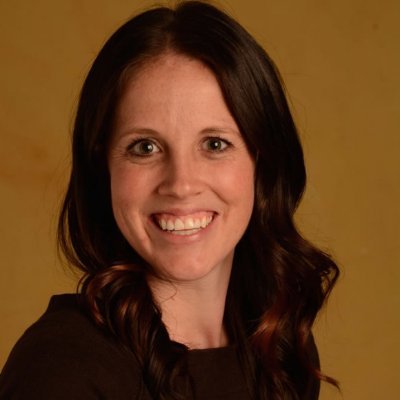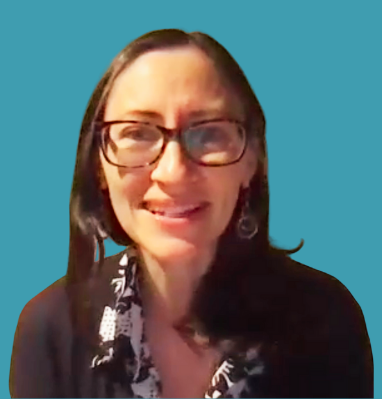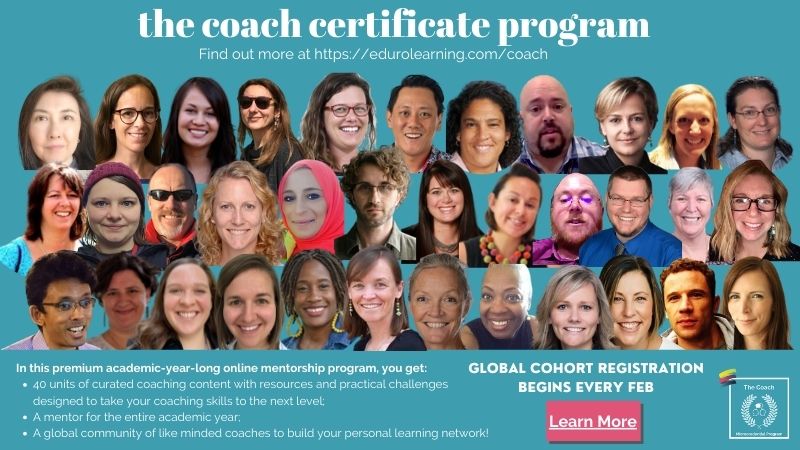In this #coachbetter episode, Kim talks with Colleen Ackford and Jennifer Thompson, two members of the amazing coaching team at The International School Nido de Aguilas in Chile!
This episode takes us through the entire development of the coaching program at Nido. They talk about how the program got started and evolved over time, how the team used data to build a more robust program based on teachers needs, how they are continually adapting and evolving to continue to build trust and expand their work to more teachers, as well as the challenges they face in continuing to grow a strong and established coaching program. No matter where you are in building your coaching program, you will find connection points within this episode.
This window inside an evolving coaching program is so valuable, and everything that they discuss in this episode is part of the learning inside The Coach Certificate & Mentorship program. Wherever you are in building a coaching culture in your school, The Coach will give you the strategies, skills, and tools you need to make coaching a success. This academic-year-long online course & mentorship program will empower you to confidently apply instructional coaching strategies in any situation – from building a coaching program to being a leader in your school community. Registration for our next global cohort opens on the 21st of February and closes on the 14th of March. Find out more, and join the waiting list at edurolearning.com/coach today!
Subscribe to #coachbetter via your favorite Podcast Player!
Featured Guests


Bonus! Watch the Spotlight Version on YouTube!
Show Notes
Tell us about your individual journeys to where you are today
Collen: Toronto, international schools for 16 years. Started in Bangkok. As a coach, started at a small school, then moved to Chile, 2000 students. 7 years.
Jennifer: NYC public schools. First international was ASB in India as a classroom teacher, coaching on the side.
Tell us the story of how your coaching program evolved over time. Where did it start? Where are you at now?
Jennifer: Coaching program started in ES, because ES really wanted coaching. They didn’t know what it could look like or what they wanted. When I came I did a lot of other things that weren’t coaching. Our team came together because of one assistant principal who was our advocate for coaching. We had 5-6 mo to think about our school culture and the model that we wanted given the school culture. Needed to identify roles first and make that clear to teachers. Lots of growing and being responsive to the wider school. Grown the coaching team over time. Team of 5 now. Growing the menu of ways teachers can access us.
Colleen: the time we had together was so important, time for us to get to know each other, and really understand what the school needed. Jen started doing informal work with teams, unpacking of units, coaching in the classroom.
Jennifer: Collected data at this time to help us see about school culture, given time and space right here right now. Data always helps when you’re trying to make decisions.
Tell us about the launch
Jennifer: we framed it around the student centered coaching model. Some teachers had never had them “watch them teach” in 15 years. It was a more isolated classroom culture. The theme of partnering with coaches to talk about my kids, instead of my teaching was very valuable. Having an expert voice come down to “sell” coaching, helped. Full faculty with Diane. Launched ourselves as thinking partners and we think together around your thinking & their learning.
Colleen: Leadership engaged teachers in a sort of what coaching is and what coaching is not. There was a lot of time spent on clarity, what it could look like. What are you committing to, what are we committing to. What a student centered goal could look like. What other ways can you access coaching beyond coaching cycles.
Colleen: One of the things we learned in that first year was the schedule that we were offering coaching cycles. We had them all running at similar times, you get an invitation. Sometimes it was in the middle of a unit. A quick revision was to offer coaching cycles in line with units of study. Got a little messy. When we started to align the cycles with learning, that met the needs of teachers.
What does your coaching program look like now?
Jennifer: across time people started asking, why don’t we have coaching in middle / high school. Coaching symposium for the region really helped grow the program. As we’ve grown out, at teh same time coaching is growing, we play a heavy role in curriculum development, mission & vision changes, strategic planning. How as we grow are we meeting the needs of the school at that time. Staff turnover, we’ve re-launched 4-5 times, need constant clarity around what coaching is, how do I access that and partner and engage. We grow, we’re on hold, learning new principals new coaches, then relaunch.
Colleen: Student centered learning labs, learning walks, Peer Observations. Open doors week. Teachers had the option to do any / all of those. Menu has grown as program has grown. Virtual learning walks in MS (below & above grade level visits)
Colleen: Learning walks: 1 hour: pre-brief, set a focus for the walk, unpack what that might look like in action (choose one of Nido’s values, what might we see, what might they be doing, generate a focus & look for), set the norms for how we’ll engage & then go for a walk, dip into 1 classroom for 5-8 minutes, getting close to teh action and taking notes of what we see, share some of what we see before we head into the next classroom. Doesn’t matter which class, looking for the same look fors, visit 2-3 classrooms. Debrief: what we noticed, how that connects to us, what that means to us, some takeaways. Structure for a way for us to learn together. Sneak peek, snapshot across a few different places.
Jennifer: learning Lab is the whole lesson, student centered learning lab. Deep unpacking of what we’re going to see kids learning & saying. Huddles in the back of the room, what are we noticing. Debriefs also include beliefs about teaching & learning and instructional strategies. Not a model classroom, we’re all learning together, we’re going to gift you with formative assessment for your kids and talk about learning at this moment in time.
Office Hours: coaching conversations: 30min looking at learning, thinking partner, etc; then a cycle for 4-6 weeks or even a mini-cycle of 1-3 weeks
How do the logistics work? Tell us about the sign up process.
Colleen: Coaching cycles: Invitations go out about 6 times a year. Sign up for a cycle, not a coach / person. As a coaching team, we look at our schedules to make sure we can take as many cycles as possible.
Menu is always available, general email address for all coaches. Learning Lab / Learning Walk work is connected to curriculum development.
Jennifer: different points in time, sometimes we are more regularly doing learning walks. Always looking for leverage points. If a team loves learning labs, we make them happen. Sometimes teams come to us and ask for facilitation, other times its’ the principal encouraging.
What’s YOUR level of coaching mastery?
All coaches go through various stages of coaching mastery. Once you identify where you’re at, you can begin to build the skills needed to move to the next stage.
This quiz is based on real-life case studies compiled from years of working with coaches inside The Coach Certificate & Mentorship Program!
When you receive your results, you’ll also get your matching case study from the STRIVE Case Studies to see where you fit in the stages of coaching mastery.
Ready to tackle your challenges and move on to the next level in YOUR coaching practice?

The STRIVE Model of Coaching Mastery quiz will help you identify your level of coaching mastery by matching you with case studies compiled from years of working with coaches inside The Coach Certificate & Mentorship Program so you can easily see where you fit!
When you complete the quiz, you’ll get:
- Your matching case study,
- Specific strengths & challenges aligned to your result;
- Suggested next steps for each stage;
Plus the Case Study Document includes:
- Case studies leveled by coaching mastery;
- A framework to identify essential stages of professional growth & key areas to focus on in your professional learning;
- Alignment with the THRIVE Model for a Successful Coaching Culture;
- Space for you to reflect & prioritize so you can take action immediately!
You’ll go straight to the Quiz, and get the Case Study Document via email
Show Notes continued…
How did you build this environment of trust & vulnerability?
Jennifer: Week of Open Doors: Over 100 teachers were in each others’ classroom that week. It’s hard to engage in something unless you can envision what it looks like. Learning walks are also an opportunity to envision was a more systematic learning walk will look lke. Experiences, constant opportunity to jump in and experience items on our coaching menu.
Colleen: Takes time. When teachers experience a coaching cycle for the first time, word of mouth spreads that it’s a safe place. Working through curriculum & problem solving around curriculum with teams is a relationship building time, that work grows work in the classroom.
What makes coaching work in your school?
Colleen: the team approach makes coaching successful. We’re always thinking together about context and how we can be the most responsive to teams and teachers we lead. We have pillars that we lean on, what we do and the role really needs clear. Across time, lots of launching and relaunching. 4 pillars: clarity, Responsiveness, partnerships, systems.
Jennifer: systems make it successful and the organic nature working together. People knwo what to expect.
What’s a challenge you face?
Jennifer: coach admin partnership. With needs of school changing, and teachers changing, this constant coming back and reflecting on, thinking about needs, what still fits (what’s tight, what’s loose). We don’t do a lot of decision making, but we have a lot of influence. It’s the questions we ask, the conversations we ask to engage in. What does that mean for the coaching program. If you don’t tend to it and care for it, keeping coaching alive could be a challenge.
Colleen: balance, every year has looked different because of responsiveness. What are the goals of the school, how are we going to work in partnership to make sure we’re working towards those goals.
How do you keep growing your program over time? How has consistency played a role in that development?
Colleen: relaunching every year, with new teacher orientation, help envision what coaching can look like. There’s always cycles happening. Teachers can count on the invitations, always running.
Jennifer: Less about showing what YOu do as a coach, more about look what kids are doing, what teachers are doing, that speaks volumes. Bringing that data to conversations with principals honors the work that is being done & brings up other trends about what they might be noticing. Putting yourself out there as a problem solver and a partner
Level Up Your Coaching with The Coach!
If you are ready to develop your coaching practice over the next academic year, and explore topics like transitioning your work from individuals to teams, please join us for our next cohort of The Coach!
Wherever you are in building a coaching culture in your school, The Coach will give you the strategies, skills and tools you need to make coaching a success and will empower you to confidently apply instructional coaching strategies in any situation – from building a coaching program, to having coaching conversations, to being a leader in your school community. We facilitate only one cohort each academic year so we can offer individualized support for each participant.
Registration for our next global cohort opens once a year – check the website for details!

Find out more at: https://edurolearning.com/coach/





Recent Comments